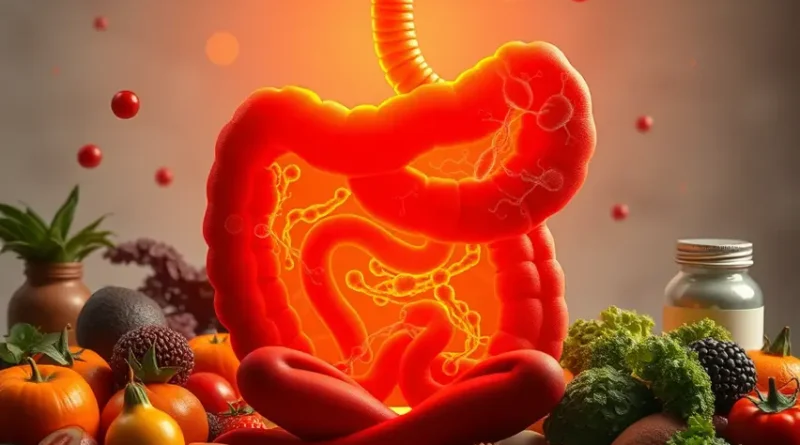The Connection Between Gut Health and Mental Well-being
In a world where self-care and wellness have taken center stage, the intricate relationship between gut health and mental well-being is gaining significant attention. Numerous studies have indicated that our gut, often referred to as our “second brain,” plays a pivotal role not just in digestion but also in influencing our mood, anxiety levels, and overall mental health.
The gut is home to trillions of microorganisms, collectively known as the gut microbiome. These bacteria, fungi, and viruses are not mere passengers; they actively communicate with our brain via the gut-brain axis. This complex network involves biochemical signaling between the gastrointestinal tract and the central nervous system, making it a crucial factor in understanding how our gut health can impact our mental state.
Understanding the Gut-Brain Axis
The gut-brain axis is a bidirectional communication system linking the emotional and cognitive centers of the brain with peripheral intestinal functions. It involves various pathways, including neural pathways like the vagus nerve, hormonal signaling, and immune system interactions. For instance, when you consume food, beneficial bacteria in your gut metabolize nutrients and produce short-chain fatty acids, which can affect your brain chemistry.
Research has shown that many mood-regulating neurotransmitters, such as serotonin, are produced in the gut. It is estimated that about 90% of the body’s serotonin is synthesized in the gastrointestinal tract. Low levels of these neurotransmitters can lead to depression, anxiety, and other mood disorders. Therefore, a disrupted gut microbiome can lead to a decrease in serotonin production, directly affecting mental health.
The Role of Probiotics and Prebiotics
Probiotics, often referred to as “good bacteria,” are live microorganisms that provide health benefits when consumed in adequate amounts. They play an essential role in maintaining gut health, enhancing the gut lining’s barrier function, and regulating immune responses. Some studies suggest that probiotics can alleviate symptoms of anxiety and depression, leading to improved overall well-being.
Similarly, prebiotics are non-digestible fibers that serve as food for these beneficial gut bacteria, promoting their growth and activity. Foods rich in prebiotics, such as onions, garlic, bananas, and whole grains, can help maintain a healthy microbiome, which is essential for optimal mental health.
The Impact of Diet on Gut Microbiome
Your diet significantly influences your gut microbiome composition. Diets that are high in sugar, processed foods, and unhealthy fats can lead to an imbalance in gut bacteria, often resulting in dysbiosis, a condition associated with various health issues, including mental disorders.
On the other hand, a diet rich in whole foods, such as fruits, vegetables, lean proteins, and healthy fats, promotes gut health and positively influences mood. Foods like fatty fish, rich in omega-3 fatty acids, have been linked to lower levels of depression, while colorful fruits and vegetables provide antioxidants that combat inflammation.
Stress and Its Effects on Gut Health
Stress is another significant factor that can affect the gut microbiome. Chronic stress can lead to a disruption in gut bacteria, worsening mental health. When we are stressed, our bodies produce elevated levels of cortisol, which can alter gut permeability and lead to inflammation. This unhealthy gut environment can increase anxiety and contribute to depressive symptoms.
Practicing relaxation techniques such as mindfulness, meditation, and yoga can help manage stress and, in turn, improve gut health. These practices have been shown to help restore a healthy balance of gut microbiota and enhance overall emotional well-being.
Conclusion
The connection between gut health and mental well-being is a burgeoning field in research, highlighting the need to adopt a holistic approach to health care. By nurturing our gut microbiome through a balanced diet, incorporating probiotics and prebiotics, and managing stress, we can significantly improve our mental well-being.
There’s still much to uncover in this exciting and evolving field, but the evidence pointing towards the gut’s influence on our minds is compelling. As we continue to learn more about the gut-brain connection, it becomes clear that taking care of our gut health may be one of the keys to achieving a happier and healthier life.

